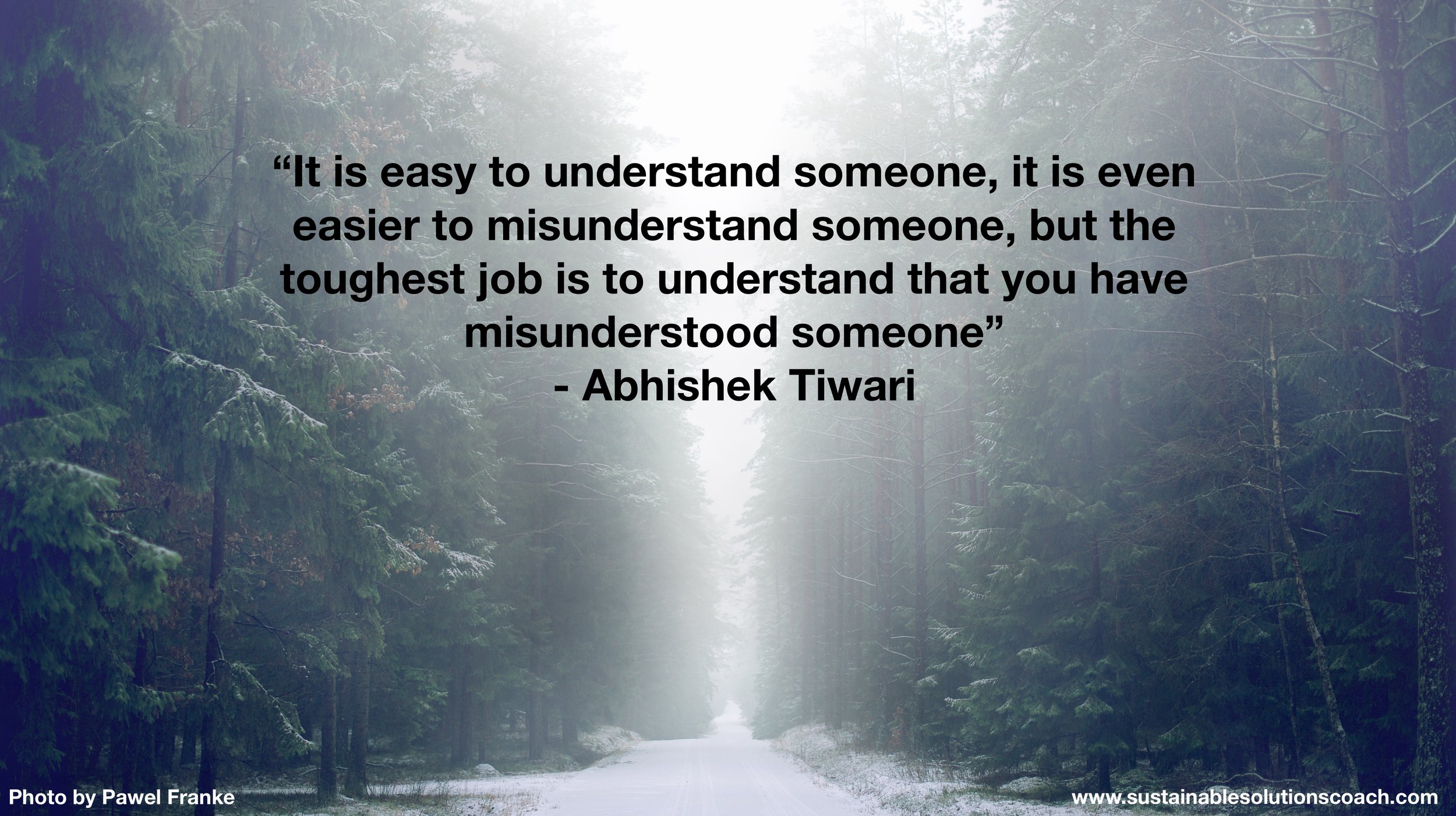As you prepare for the holidays doing your gift shopping, decorating, baking, planning, cooking, and more, it can feel like a very busy or even stressful time of year. And when you’re busy, you may be more prone to hurry through your to-do list. On that to-do list is probably several communication items, whether it’s responding to emails or texts, an invitation, a proposal, deciding what your response is going to be to a recent presentation at work, or some other communication item. The question is, how accurately are you reading these communications before responding to them?
Now your first thought may be, “of course I’m accurately reading them.” And, what if this thought is actually untrue at times?
Ever have the below happen to you?
You read an email, text, or letter, and get upset. What upset you stays on your mind for a while. Later you pull up the communication again to re-read it or show it to someone else only to find it actually says something other than what you originally thought it said. And you just spent hours or days being upset about something that was actually never communicated.
Or how about this?
You respond to the communication only to have the person follow up with something like:
“It sounds like there is a misunderstanding”
“I didn't say that”
“That’s not what I communicated”
Take one of my recent text exchanges for example. I had sent a text of “Anytime after 9:30am, and other than 12-1pm or 7-8:30pm works for me”. And what the person responded with was “I definitely cannot do 9:30 or 12-1pm. I could possibly do 7”. The latter two times the person responded with, I had already clarified I was unavailable at those times, so they had definitely misread my text.
As change agents and leaders, we’re constantly in communication with stakeholders. And if none of the experiences above are happening to you, then great, you’re probably accurately reading the communications stakeholders are sending you. If the above experiences are happening however, whether it’s at work or in your personal life, it’s time to admit, there are times you’re misreading communications.
So slow down, take the time to accurately read and interpret the communication before responding to it. Otherwise, you’re leaving the communicator feeling unheard and misunderstood, and the way you choose to respond may generate a misunderstanding which can lead to:
A situation taking a lot more of your time and energy to resolve than had the communication been accurately read the first time
Hurt feelings
Conflict / resentment
Stress
At one of the busiest times of the year, what sounds better to you? Taking time to read the communication accurately the first time? Or rushing through, misunderstanding the communication, and potentially generating hurt feelings, conflict, resentment, and stress?
Call to Action
Struggling with accurately reading communications and your responses are generating a lot of misunderstandings? Reach out to Rosanne for help so you can be a more effective change agent / leader.
Using the comments feature, what is an example of where you misread a communication?
Found this blog useful or know someone this can help? Share it with your network and sign up on the home page to receive the latest blog posts.
About the Author: Rosanne Essiambre helps change agents and departments in one-on-one and group settings to be seen, be heard, and be effective in bringing about change in the organization and/or in their personal lives. She provides consulting and facilitation to organizations to improve communications and collaboration, smooth out the change / transformation journey, get to the root cause of an issue so it can be solved for good, improve processes, and implement successful lessons learned. And she conducts workshops, trains, and speaks on Energy Leadership, Emotional Intelligence, Resilience, Being a Change Agent and more. If you or your organization could use support with your change effort or some inspiration, contact Rosanne for a complimentary discovery session. Rosanne is a Change Agent Coach, Facilitator, Six Sigma Black Belt, Change Management / Continuous Improvement Consultant, Speaker, and Energy Leadership Index Master Practitioner with more than 20 years experience working on a variety of transformations across a diverse set of industries both domestically and internationally, while continuously improving herself.
